Key Takeaways
- Yes, dark chocolate contains caffeine - typically 12-50mg per serving (28g/1oz)
- The darker the chocolate, the higher the caffeine content
- Dark chocolate contains less caffeine than coffee but more than milk chocolate
- Most adults can safely consume dark chocolate without caffeine-related side effects
- For delicious, high-quality dark chocolate products, check out Zucchero Canada's chocolate collection
Are you a chocolate lover wondering about the caffeine content in your favorite treat? You're not alone. Whether you're sensitive to caffeine, monitoring your intake, or simply curious about what's in your food, understanding the caffeine content in dark chocolate is important.
Caffeine, Where is it Found?
Caffeine is a natural stimulant most commonly found in coffee, tea, and cacao plants. It works by stimulating the brain and central nervous system, helping you stay alert and preventing the onset of tiredness. This alkaloid compound is one of the most widely consumed psychoactive substances in the world.
Caffeine occurs naturally in:
- Coffee beans
- Tea leaves
- Cacao beans (the source of chocolate)
- Kola nuts (used in some soft drinks)
- Guarana berries (often found in energy drinks)
When it comes to chocolate, caffeine is naturally present in the cacao beans used to make the product. The amount of caffeine varies depending on the type of chocolate and its cacao content.
Dark Chocolate and Its Composition
Dark chocolate is made from cacao beans, sugar, and often a small amount of cocoa butter. Unlike milk chocolate, it contains little to no milk solids and typically has a higher percentage of cacao.
The composition of dark chocolate typically includes:
- Cacao solids: The primary ingredient that gives dark chocolate its characteristic flavor and color
- Cocoa butter: The natural fat found in cacao beans
- Sugar: Added to balance the natural bitterness of cacao
- Flavoring agents: Sometimes vanilla or other flavorings are added
- Emulsifiers: Often lecithin is added to maintain texture
What sets dark chocolate apart from other varieties is its cacao content, usually expressed as a percentage on the packaging. This percentage indicates how much of the chocolate comes from cacao beans and their derivatives. Common dark chocolate varieties range from 50% to 90% cacao, with some specialty chocolates reaching as high as 99%.
Caffeine Content in Dark Chocolate
Yes, dark chocolate does contain caffeine. The caffeine content in dark chocolate comes directly from the cacao beans used to make it. The exact amount of caffeine depends primarily on the percentage of cacao in the chocolate.
On average, dark chocolate contains about 12-50 mg of caffeine per serving (28g or 1oz). To put this in perspective:
- A standard 8oz cup of coffee contains approximately 95-200 mg of caffeine
- A can of cola contains about 30-40 mg of caffeine
- A cup of black tea contains about 40-60 mg of caffeine
Factors Affecting Caffeine Levels in Dark Chocolate
Several factors influence the amount of caffeine in your dark chocolate:
- Cacao percentage: The higher the cacao content, the more caffeine present. A 70% dark chocolate will have more caffeine than a 55% variety.
- Bean variety: Different varieties of cacao beans naturally contain different amounts of caffeine.
- Processing methods: How the cacao is processed can affect the final caffeine content.
- Serving size: Obviously, consuming a larger amount of dark chocolate means ingesting more caffeine.
For those looking to enjoy high-quality dark chocolate for baking or confectionery purposes, FCH Dark Chocolate Candy Melts Wafers from Zucchero Canada offer excellent flavor while being easy to work with.
Comparing Caffeine in Dark Chocolate vs. Other Sources
To better understand the caffeine content in dark chocolate, let's compare it to other common sources:
| Food/Beverage | Serving Size | Approximate Caffeine Content |
|---|---|---|
| Dark Chocolate (70-85%) | 1 oz (28g) | 23-30 mg |
| Dark Chocolate (50-69%) | 1 oz (28g) | 12-20 mg |
| Milk Chocolate | 1 oz (28g) | 5-10 mg |
| White Chocolate | 1 oz (28g) | 0 mg (no caffeine) |
| Brewed Coffee | 8 oz (237ml) | 95-200 mg |
| Espresso | 1 oz (30ml) | 47-75 mg |
| Black Tea | 8 oz (237ml) | 40-60 mg |
| Green Tea | 8 oz (237ml) | 25-45 mg |
| Cola | 12 oz (355ml) | 30-40 mg |
As you can see, dark chocolate contains significantly less caffeine than coffee but more than milk chocolate. White chocolate, which is made from cocoa butter without the cocoa solids, contains no caffeine at all.
Health Implications of Caffeine in Dark Chocolate
Potential Benefits
The modest amount of caffeine in dark chocolate, combined with other compounds like theobromine (another stimulant), can offer several benefits:
- Mild energy boost: The caffeine in dark chocolate can provide a gentle lift without the jitters often associated with coffee.
- Improved cognitive function: Research suggests that the combination of caffeine and flavanols in dark chocolate may temporarily enhance focus and mental alertness.
- Mood enhancement: Dark chocolate contains compounds that may stimulate the production of endorphins, the body's natural "feel-good" chemicals.
- Antioxidant properties: The flavanols in dark chocolate have antioxidant properties that, when combined with moderate caffeine intake, may support overall health.
Considerations and Precautions
While the caffeine content in dark chocolate is relatively low compared to coffee, there are some considerations to keep in mind:
- Individual sensitivity: Some people are more sensitive to caffeine than others. Even small amounts can affect sleep or cause jitteriness in sensitive individuals.
- Cumulative intake: Consider your total caffeine consumption from all sources throughout the day. Dark chocolate consumed alongside coffee or tea will add to your total caffeine intake.
- Time of consumption: Consuming dark chocolate late in the evening might affect sleep quality for sensitive individuals due to its caffeine content.
- Health conditions: Those with certain health conditions like heart problems, high blood pressure, or anxiety disorders should be mindful of their caffeine intake, including from dark chocolate.
Who Should Monitor Dark Chocolate Consumption?
Pregnant Women
Pregnant women are often advised to limit caffeine intake to about 200mg per day. While dark chocolate contains relatively small amounts of caffeine, it should be considered as part of the total daily caffeine consumption during pregnancy.
A pregnant woman could reasonably enjoy a serving of dark chocolate without approaching caffeine limits, but should be mindful if consuming multiple servings or combining with other caffeine sources like coffee or tea.
Individuals with Caffeine Sensitivity
People who experience adverse effects from caffeine, such as:
- Insomnia
- Anxiety
- Rapid heartbeat
- Digestive issues
- Headaches
Should monitor their dark chocolate consumption. For those with extreme sensitivity, options like white chocolate (which contains no caffeine) may be preferable.
Children
Children are more sensitive to caffeine's effects due to their smaller body size. While moderate dark chocolate consumption is generally considered safe for children, parents might want to limit the amount, especially before bedtime, to avoid potential sleep disruption.
Enjoying Dark Chocolate Mindfully
Recommended Serving Sizes
To enjoy dark chocolate without consuming excessive caffeine or calories:
- A typical serving is about 1-1.5 ounces (28-42g)
- This provides approximately 12-50mg of caffeine, depending on the cacao percentage
- For reference, a standard chocolate bar is usually around 3-3.5 ounces, so roughly 2-3 servings
Best Times to Enjoy Dark Chocolate
Given its caffeine content, consider timing your dark chocolate consumption:
- Morning or early afternoon: For a mild energy boost
- Pre-workout: Some find that a small amount of dark chocolate provides a gentle energy lift before exercise
- After lunch: As a satisfying dessert that won't disrupt sleep later
- Limited in evening: If you're sensitive to caffeine, try to enjoy dark chocolate earlier in the day
For culinary enthusiasts looking to incorporate premium dark chocolate into their recipes, Zucchero Canada's chocolate collection offers excellent options for both eating and cooking.
Dark Chocolate for Baking and Cooking
The caffeine content in dark chocolate remains stable during baking and cooking, so recipes using dark chocolate will contain caffeine in the finished product. This is worth considering when preparing desserts for children or those sensitive to caffeine.
Popular dark chocolate applications in baking include:
- Chocolate ganache: A rich, smooth mixture of chocolate and cream
- Chocolate mousse: A light, airy dessert with intense chocolate flavor
- Brownies and cookies: Baked goods with deep chocolate taste
- Chocolate-dipped fruits: A healthier treat option
- Hot chocolate: A warming beverage, especially when made with high-quality dark chocolate
For consistent results in your chocolate creations, FCH Dark Chocolate Candy Melts Wafers provide excellent meltability and flavor.
Caffeine-Free Chocolate Alternatives
If you're looking to avoid caffeine entirely but still want to enjoy chocolate flavors, consider these alternatives:
- White chocolate: Made from cocoa butter without cocoa solids, white chocolate contains no caffeine.
- Ruby chocolate: A relatively new variety with a naturally pink color and berry-like flavor that contains minimal caffeine.
- Carob: Though not technically chocolate, carob products have a similar flavor profile to chocolate but are naturally caffeine-free.
- Cocoa butter-based confections: Products made primarily with cocoa butter rather than cocoa solids will have little to no caffeine.
FAQ Section
How much caffeine is in dark chocolate compared to coffee?
A 1-ounce serving of dark chocolate (28g) typically contains 12-30mg of caffeine, while an 8-ounce cup of coffee contains 95-200mg. This means dark chocolate has roughly 15-25% of the caffeine found in a standard cup of coffee.
Can I eat dark chocolate if I'm sensitive to caffeine?
If you have mild caffeine sensitivity, you might be able to enjoy small amounts of dark chocolate without issues. Those with severe caffeine sensitivity might want to choose white chocolate instead, which contains no caffeine. Always listen to your body and consult with a healthcare provider if you have concerns.
Does milk chocolate have caffeine too?
Yes, milk chocolate does contain caffeine, but in smaller amounts than dark chocolate. Typically, milk chocolate contains about 5-10mg of caffeine per ounce.
Will the caffeine in dark chocolate keep me awake at night?
It depends on your individual sensitivity to caffeine and how much you consume. For most people, a small serving of dark chocolate in the evening won't significantly impact sleep, but those who are sensitive to caffeine might experience sleep disturbances. If you're concerned, enjoy your dark chocolate earlier in the day.
Does chocolate have more caffeine than tea?
Generally, dark chocolate contains similar or slightly less caffeine than black tea, ounce for ounce. A standard cup of black tea (8oz) contains about 40-60mg of caffeine, while an ounce of dark chocolate typically has 12-30mg.
Is the caffeine in chocolate different from the caffeine in coffee?
Chemically, the caffeine molecule is identical regardless of its source. However, chocolate also contains theobromine, another stimulant that has a milder, longer-lasting effect than caffeine. This combination creates a different overall experience compared to the caffeine in coffee.
Conclusion
Dark chocolate does indeed contain caffeine, with the amount varying based primarily on the cacao percentage. The higher the cacao content, the more caffeine present. However, even high-percentage dark chocolate contains significantly less caffeine than a cup of coffee.
For most adults, the caffeine in dark chocolate isn't a concern when consumed in reasonable amounts. In fact, when enjoyed mindfully, dark chocolate can be part of a balanced lifestyle, offering not just a delightful taste experience but potential health benefits as well.
Whether you're a chocolate connoisseur, a casual enjoyer, or someone who uses chocolate in baking and cooking, understanding its caffeine content helps you make informed choices about your consumption.
Ready to explore high-quality chocolate products? Visit Zucchero Canada for premium chocolate options, including their excellent FCH Dark Chocolate Candy Melts Wafers, perfect for all your baking and confectionery needs.

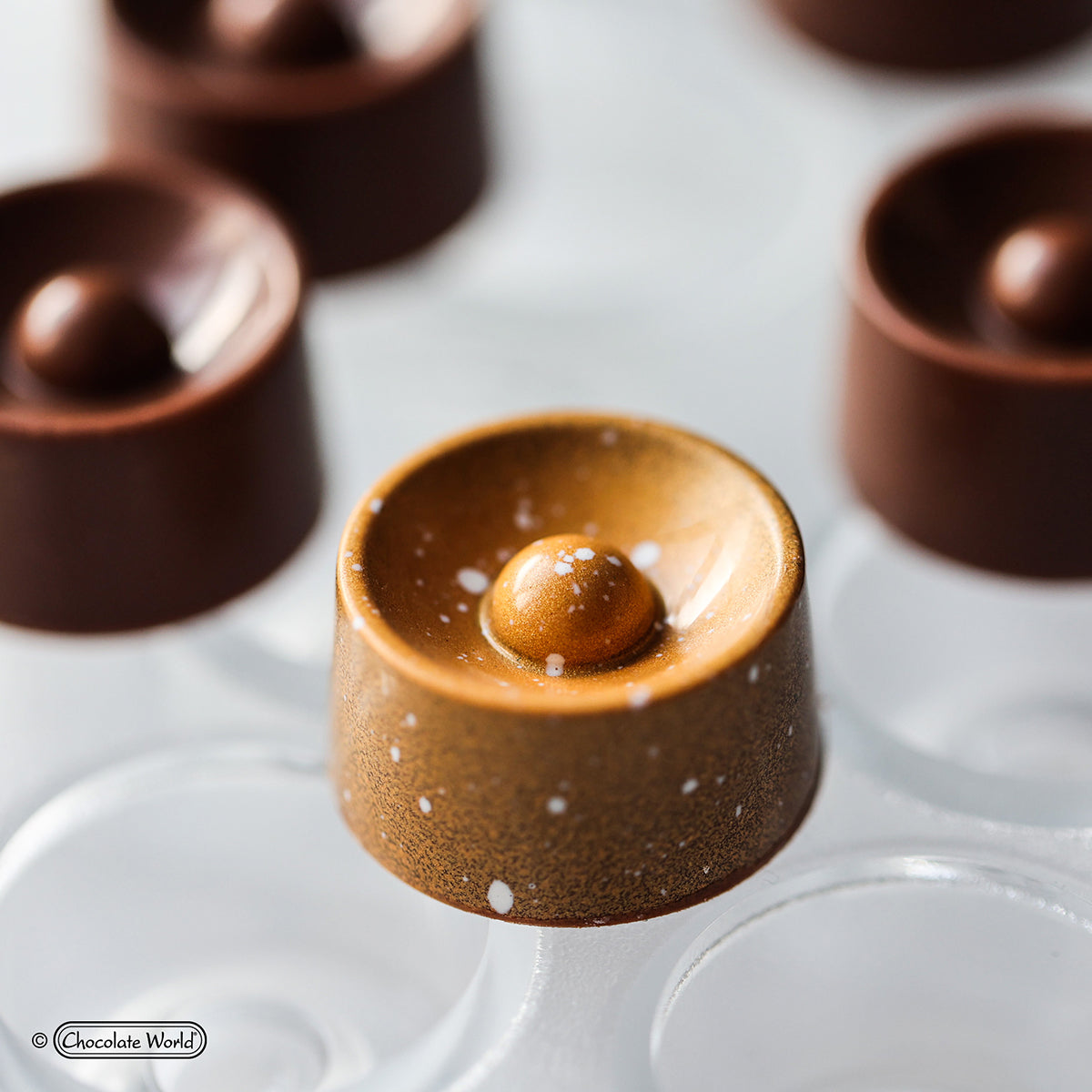
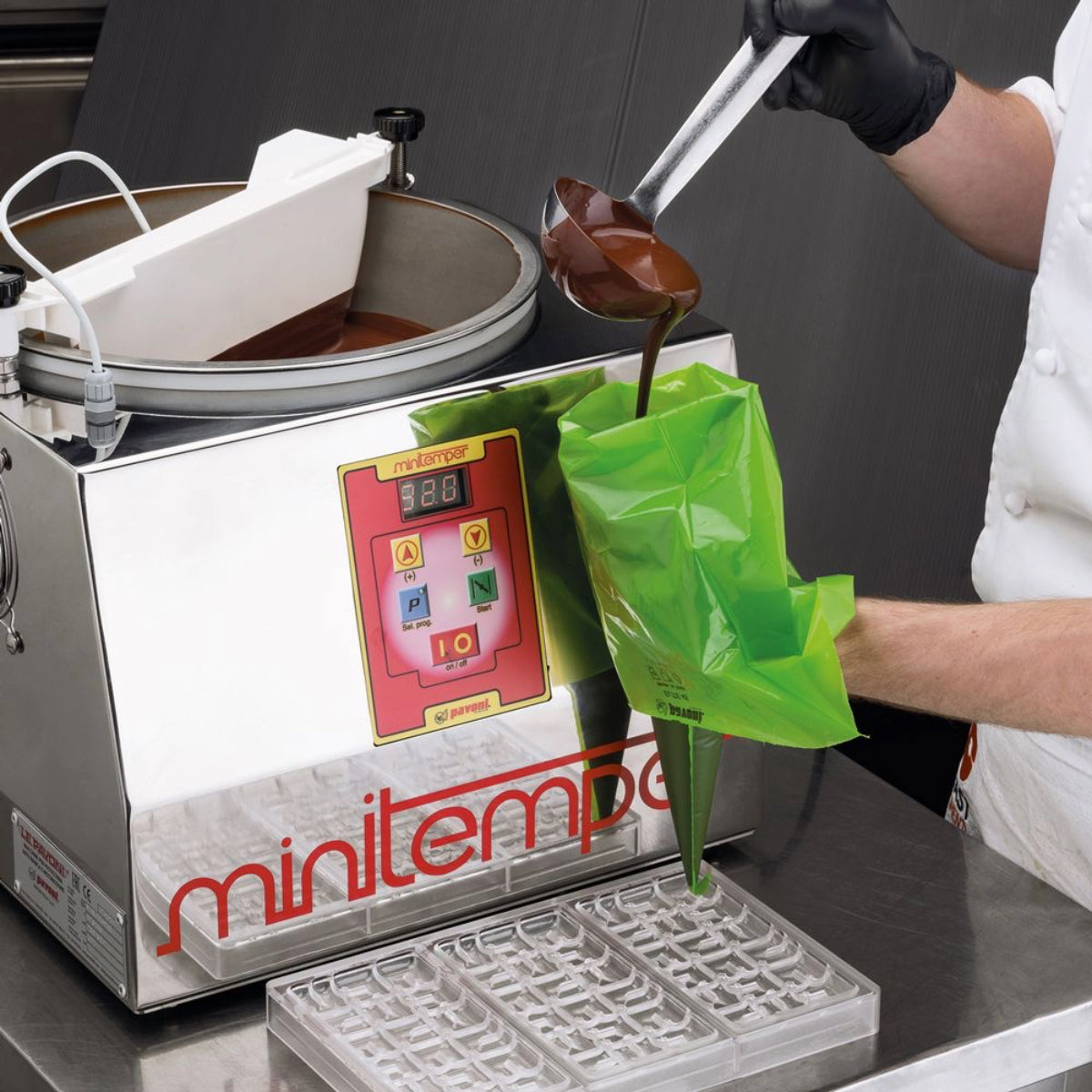
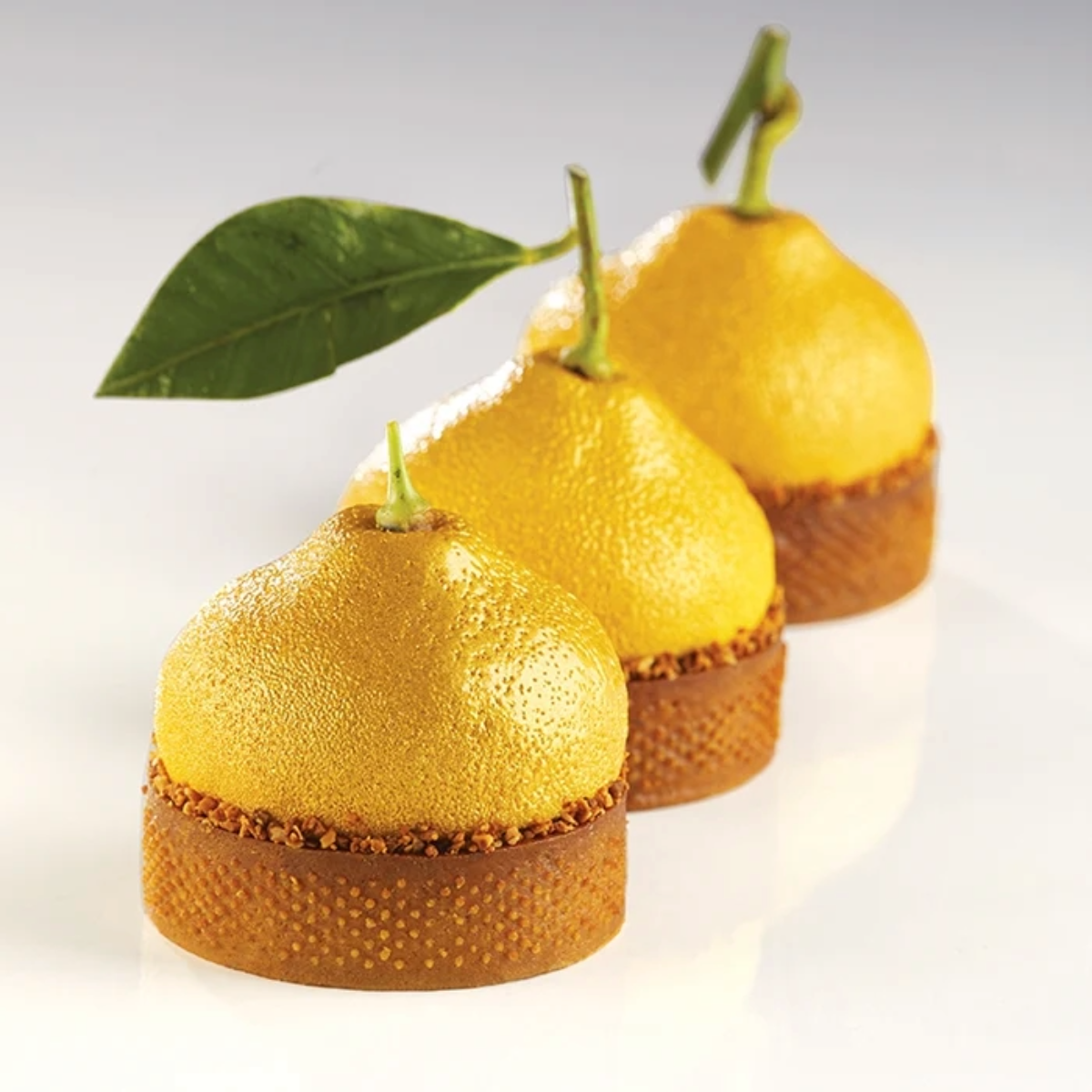
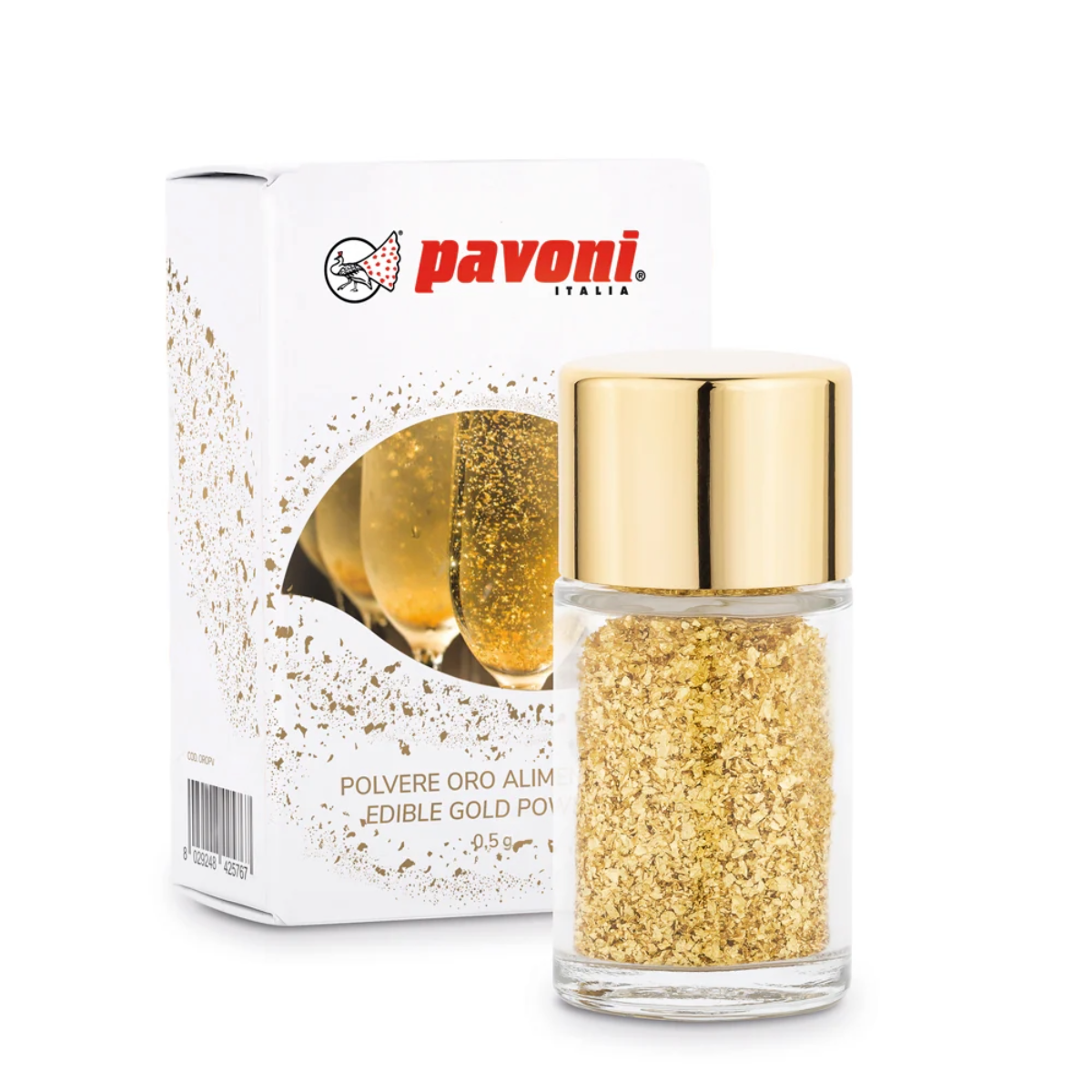
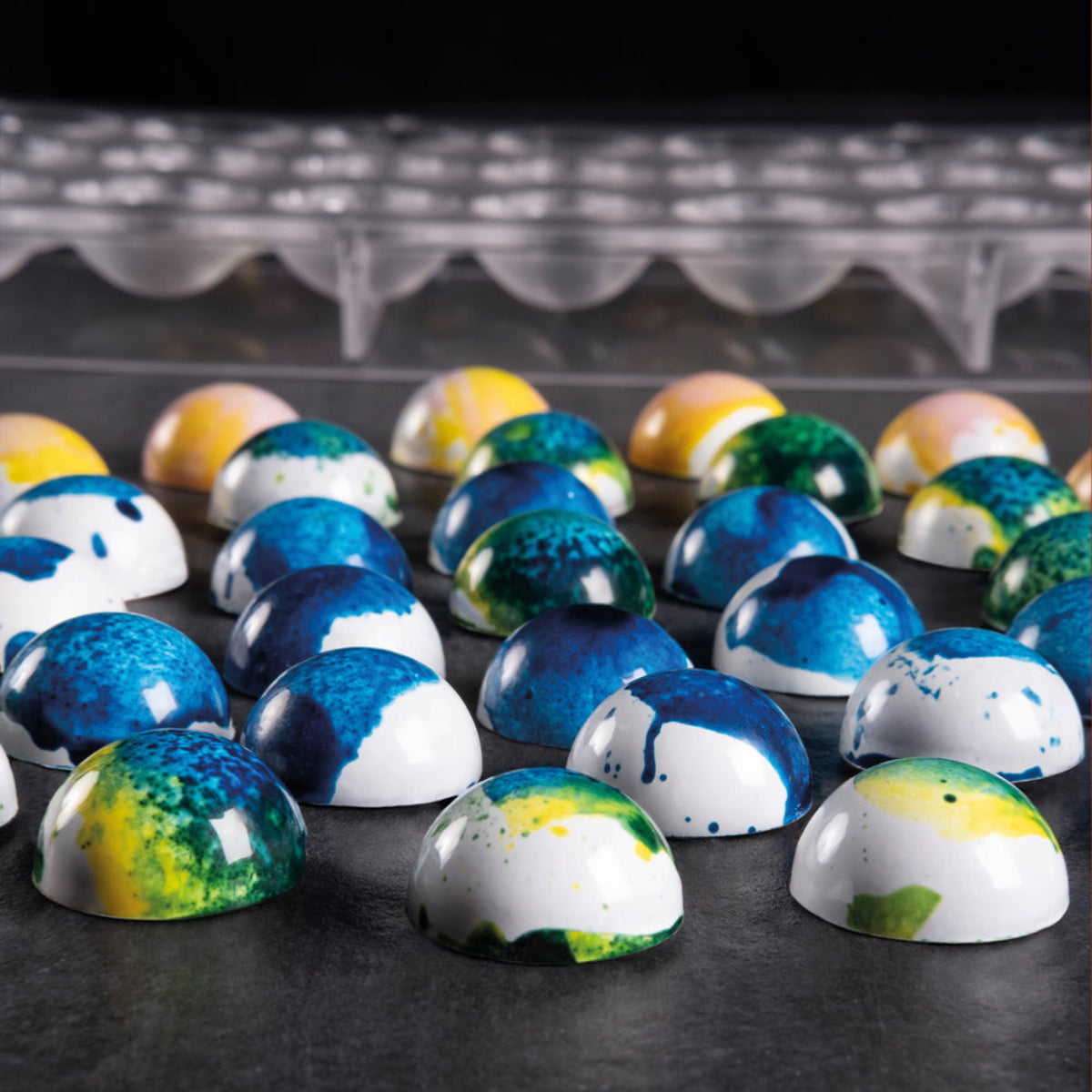



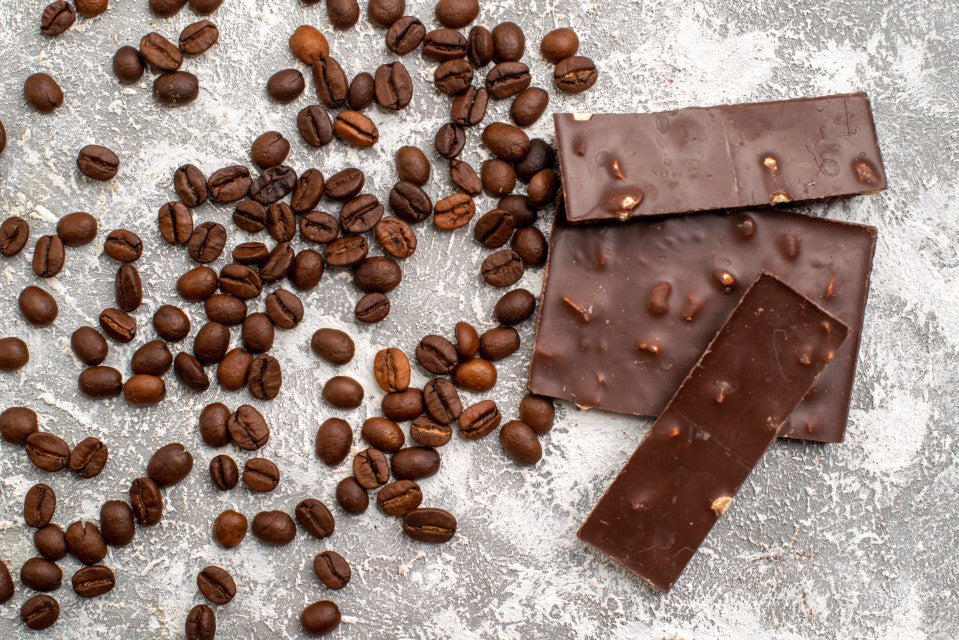
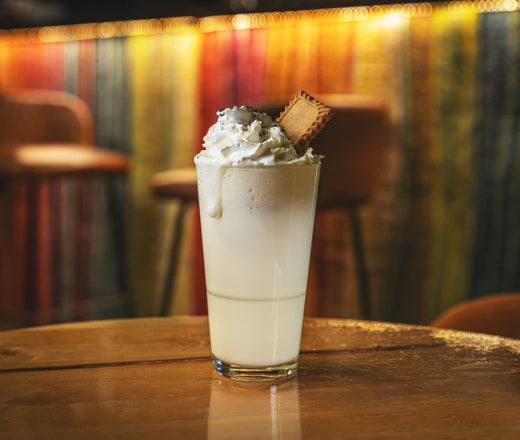
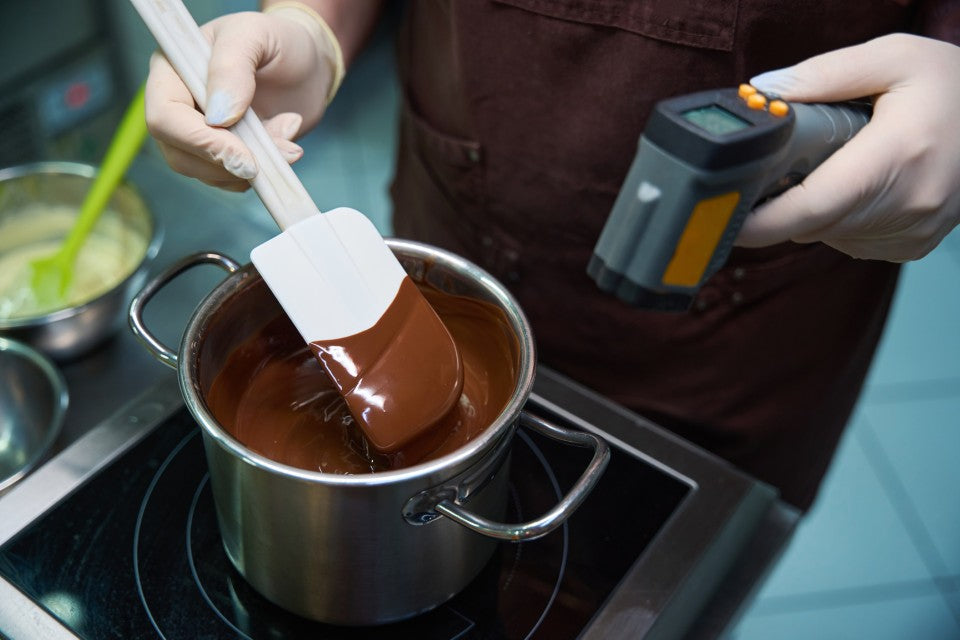


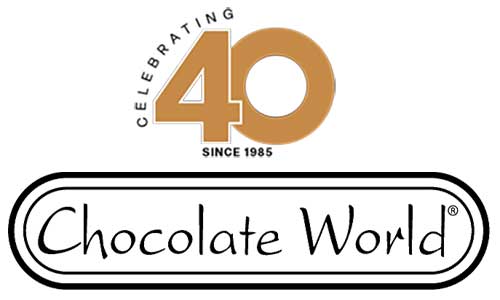

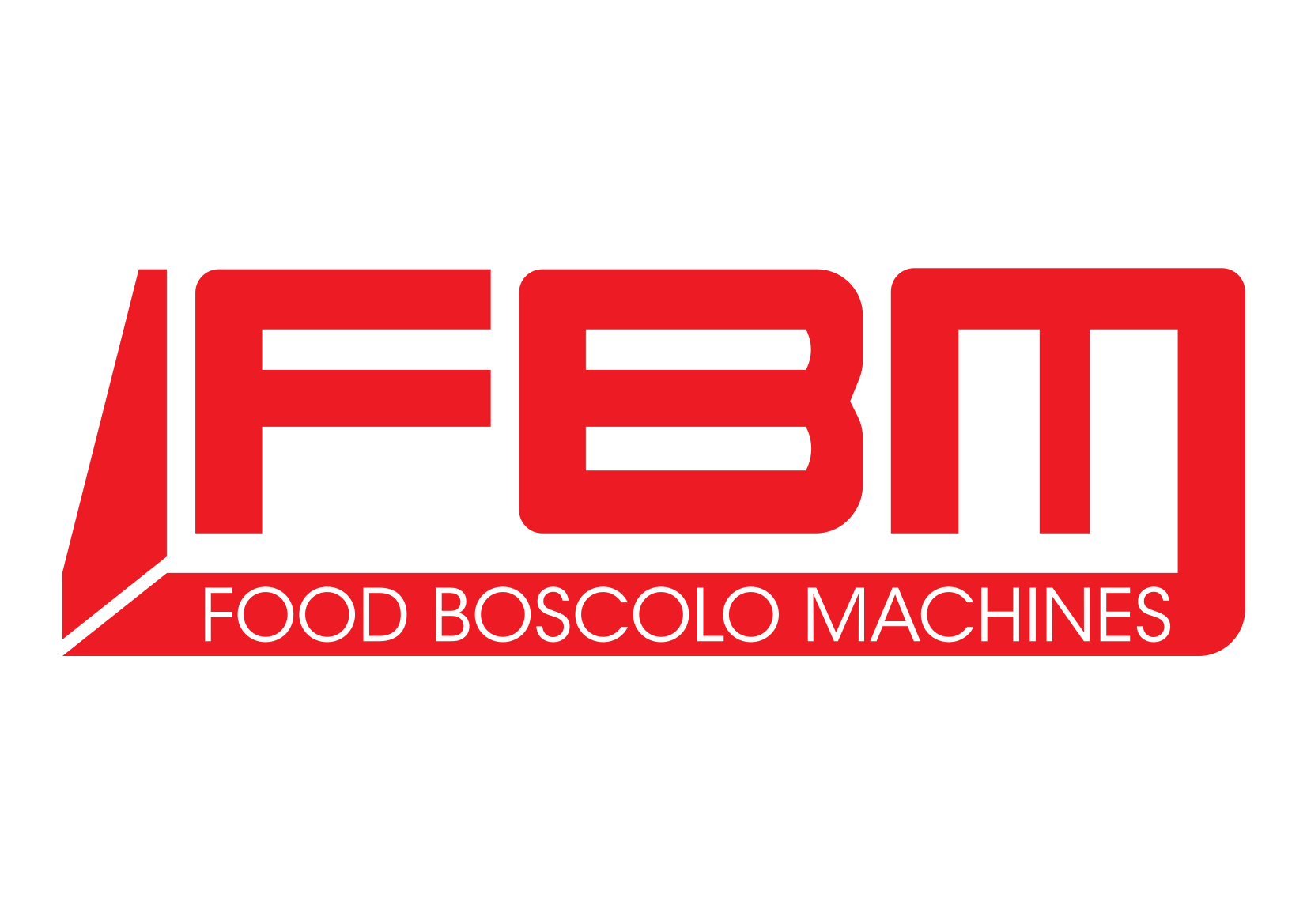
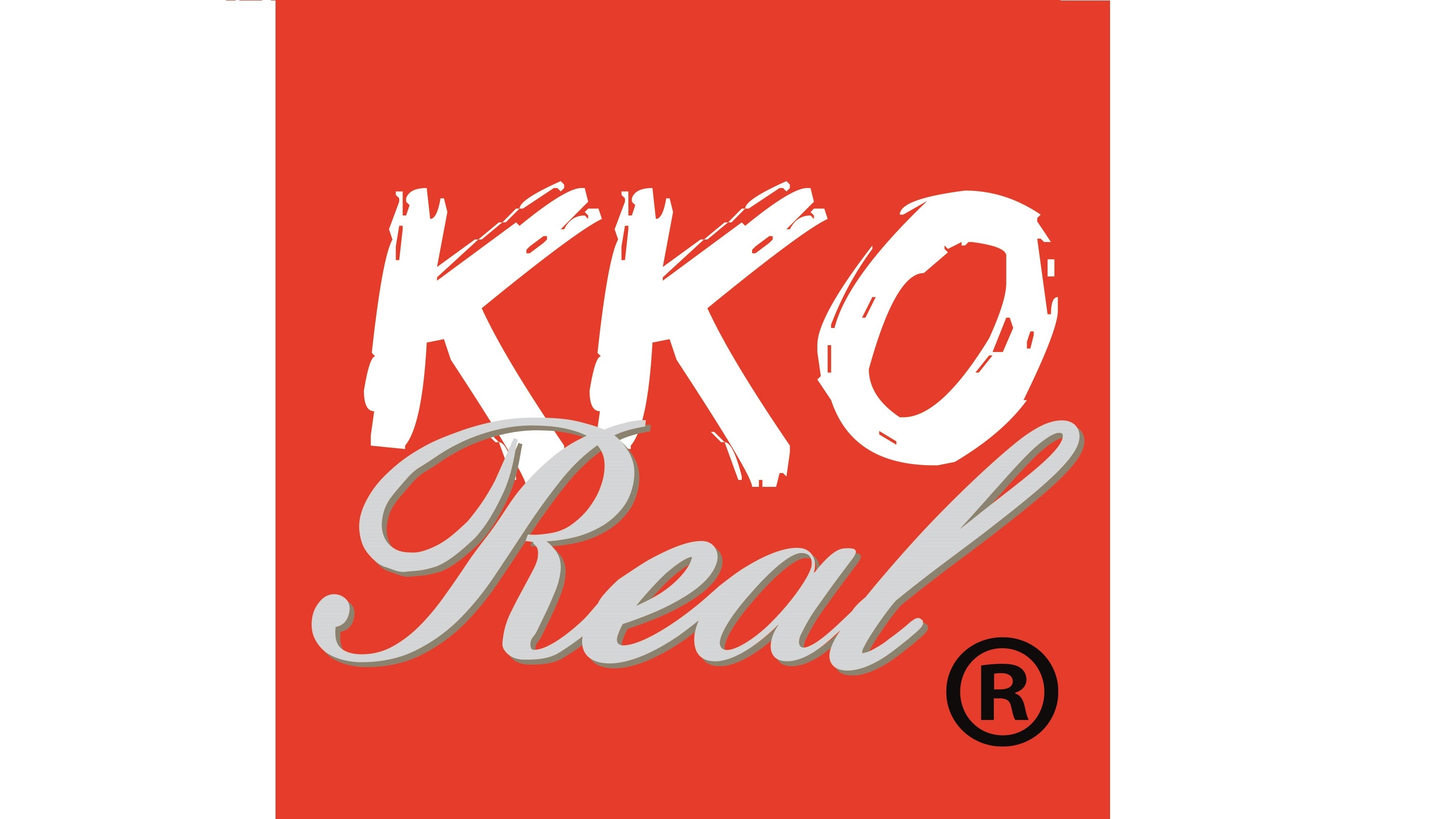
















Leave a comment
All comments are moderated before being published.
This site is protected by hCaptcha and the hCaptcha Privacy Policy and Terms of Service apply.